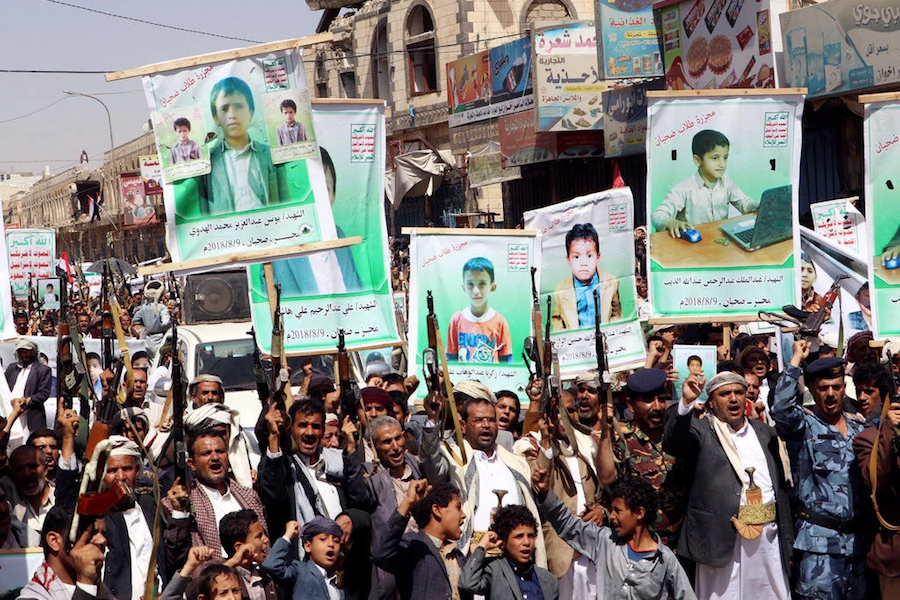
American Interests aren’t Being Served in Yemen
Imagine waking up every morning, weak and barely able to move. Imagine gnawing hunger, and cholera wracking your body. Outside, war rages on. This is a normal day in Yemen.
Since 2015, civil war between the Yemeni government and the Houthi rebels has led to an estimated 40,000 civilian casualties. Violence, famine, and disease are rampant. Nearly 14 million Yemenis rely on emergency rations, and about 1.2 million are suffering from the world’s worst modern cholera outbreak. To address this horror, the United States must change its policy in Yemen. The U.S. should encourage peace talks between the Houthis and the Yemeni government, end the Saudi naval blockade of Yemeni ports, and send humanitarian aid to the millions in need.
Such an enormous humanitarian crisis is a result of Yemen’s civil war. On one side are the Houthis, backed by Iran. On the other is the Yemeni government, backed by the Saudi Arabia-led military coalition of Arab states. The U.S. supports this coalition with weapons and intelligence.
U.S. involvement in Yemen’s civil war has failed to end the war, and instead has aggravated it. By backing the military coalition, the U.S. has contributed to both the loss of civilian lives, and to the humanitarian crisis in Yemen. The U.S. should:
Facilitate peace talks. The U.S. should facilitate peace talks among the parties involved, to help end the war. Purported war crimes such as deadly air strikes, sexual violence, and recruitment of child soldiers, have been committed by both sides. A diplomatic solution will save many innocent civilian lives.
Pressure Saudi Arabia to end the naval blockade of Yemeni ports. This blockade, intended to stop the Houthis from getting weapon shipments, also prevents necessary supplies such as food and medicine from reaching the Yemeni people. The U.S. can lean very hard on the Saudis to convince them to stop the naval blockade, at least to let aid through. The Saudis know that the threat of sanctions, or a halt on arm sales, is always possible. Once the blockade ends, the Yemeni people can more quickly and easily get the aid they desperately need.
Send more humanitarian aid. Many are displaced within Yemen. Many have fled to other countries like Djibouti, Somalia, and are living in poor conditions in camps, or need assistance resettling in their new cities. Thus far in 2018, the U.S. has provided nearly $600 million toward the Yemen crisis. In 2019, the U.S. should increase this amount by an additional $100 million.
While this policy emphasizes the humanitarian aspect of the war, it should still address all pressing issues. Whether it be negotiating a ceasefire or forming a plan of action to stop terrorist expansion in the region, the U.S. should make sure all issues are brought to the table during peace talks. Yet the humanitarian focus is imperative, because even if the war ended tomorrow, millions would still need aid.
To date, U.S. involvement in Yemen’s civil war has done more harm than good, intensifying the humanitarian crisis. The Yemeni people need peace. The Yemeni people need a helping hand. By working to alleviate the humanitarian crisis, we will give the Yemeni people a new chance at life.
